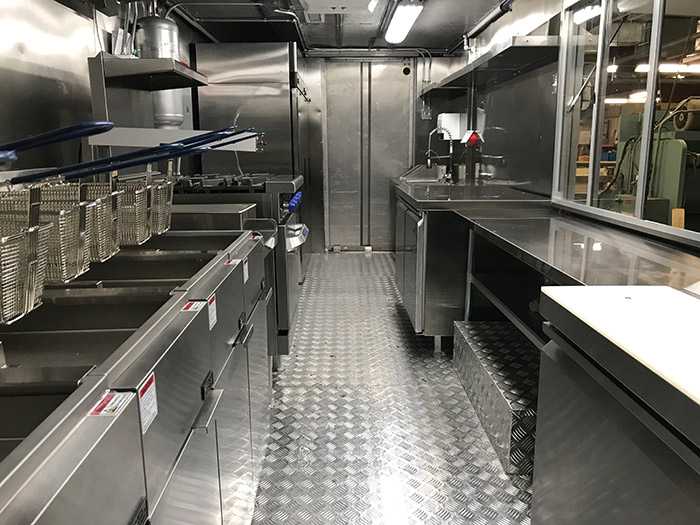Posted by Firouzeh Tahbaz

The sizzle of grilling meat, the aromatic scent of spices, and the cheerful banter of customers — the world of food trucks is a vibrant and flavorful one. Behind the scenes, the success of a food truck hinges on one crucial element: its design. A well-designed food truck isn’t just a mobile kitchen; it’s a work of culinary art on wheels. In this blog, we’ll dive into the essential considerations and tips for designing the perfect food truck that captures attention, serves efficiently, and keeps the flavors rolling.
1. Conceptualization: Where Culinary Dreams Take Shape
Your food truck’s design begins with a vision. Consider your cuisine, brand identity, and target audience. Are you serving gourmet burgers, vegan delights, or artisanal pastries? Let your concept drive the design, from the exterior color scheme to the kitchen layout.
2. Functionality: The Heartbeat of a Well-Designed Kitchen
Efficiency is paramount in a food truck kitchen. Space is limited, so every inch must be optimized. Arrange equipment strategically to ensure a smooth workflow. Your design should minimize movement between cooking stations and prioritize easy access to ingredients and tools. Always check the depth of appliances to ensure two large pieces of equipment are not facing each other and minimize aisle space. And make sure your fridge doors open in a way that works well for your workflow. A well-organized kitchen leads to quicker service and happier customers.
3. Equipment Selection: Tools of the Mobile Culinary Trade
Carefully choose your equipment based on your menu and available space. Compact, versatile appliances are key. From high-powered burners to commercial-grade space-saving refrigerators, every piece must make sense and be useful. True Refrigeration has some great compact refrigeration options that are worth investing in. Also, consider energy efficiency to reduce operating costs and environmental impact.
4. Exterior Appeal: The Art of Grabbing Attention
Your food truck’s exterior is its first impression. Design it to stand out while reflecting your brand. Bold, eye-catching graphics and a unique color palette can draw in curious passersby. Make sure your truck’s design communicates your cuisine and personality, whether it’s a rustic charm, trendy, or minimal.
5. Branding and Signage: Making Your Mark
A strong brand presence is vital in the food truck industry. Your logo, truck name, and tagline should be visible and memorable. Clear, legible signage is crucial for attracting customers from a distance. Consider illuminated signs on top of your truck for evening service and reflective elements for safety.
6. Space Efficiency: Storage Solutions and Beyond
In a compact environment, storage solutions are more than just shelves and compartments. Think creatively about vertical space utilization and hidden storage options. Foldable tables, custom drawer sizes for food containers, chit rails, and more are useful in food trucks and concession trailers.
7. Plumbing and Electrical: The Backbone of Operation
Food trucks rely on plumbing and electrical systems to function. Ensure your design accounts for water tanks, waste disposal, electrical outlets, generator compartments etc. Compliance with local regulations is crucial to avoid operational hiccups.
9. Accessibility: Serving All Customers with Ease
Consider how your design accommodates customers with disabilities. Ensure accessible ordering windows, counter heights, and pathways. A food truck that welcomes all patrons fosters positive customer experiences.
10. Maintenance and Durability: Longevity Matters
Choose durable materials that can withstand the rigors of the road and various weather conditions. Easy-to-clean surfaces like food-grade stainless steel and regular maintenance will keep your food truck looking and performing at its best.
Conclusion
Designing the perfect food truck is a blend of creativity, functionality, and practicality. Your food truck’s design should not only reflect your culinary vision but also enhance the overall customer experience. By considering these key tips and considerations, you’ll be well on your way to rolling out a food truck that’s a feast for the senses and a recipe for success on the streets. Happy designing and happy cooking!














